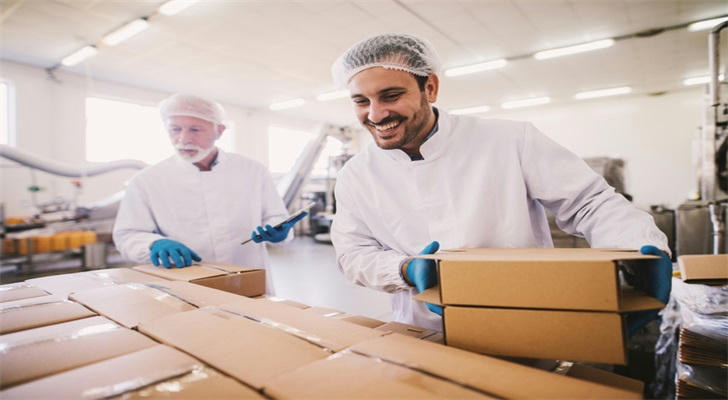What skills and qualifications are necessary for a career in food packaging?

Food packaging is essential for modern society, ensuring food safety, preservation, and marketability. From simple bags to advanced films, packaging solutions cater to diverse needs. However, this dynamic field demands a wide range of skills from professionals. To succeed, they must possess technical expertise, strong soft skills, and a solid educational background.
Essential Skills and Qualifications for Food Packaging Professionals
To excel in the dynamic and ever-evolving food packaging industry, individuals need a robust combination of technical skills, soft skills, and educational qualifications.
Technical Skills
Packaging Design and Development:
• Proficiency in packaging design software like Adobe Illustrator, InDesign, and CorelDRAW.
• Deep understanding of packaging materials, including paper, plastic, metal, glass, and biodegradable options.
• Knowledge of packaging printing processes such as flexography, offset printing, gravure printing, and digital printing.
• Ability to design packaging that is visually appealing, functional, and compliant with industry standards.
• Understanding of structural design principles to ensure packaging can withstand transportation, storage, and handling.
Food Safety and Quality:
• Knowledge of food safety regulations, including FDA, HACCP, and other relevant standards.
• Understanding of food preservation methods like pasteurization, sterilization, and aseptic packaging.
• Ability to select packaging materials that maintain food quality, prevent contamination, and extend shelf life.
• Familiarity with food labeling requirements and regulations.
Materials Science:
• In-depth knowledge of the properties of various packaging materials, including barrier properties, moisture resistance, and oxygen permeability.
• Ability to select appropriate materials based on product characteristics, shelf life requirements, and environmental considerations.
• Understanding of sustainable packaging options and their impact on the environment.
Engineering Principles:
• Knowledge of engineering principles related to packaging design, such as structural analysis, load-bearing capacity, and ergonomics.
• Understanding of packaging machinery and equipment, including filling machines, sealing machines, and labeling machines.
• Ability to optimize packaging processes for efficiency and cost-effectiveness.
Soft Skills
• Problem-Solving: Ability to identify and address packaging challenges, such as product leakage, contamination, or damage.
• Creativity: Capacity to develop innovative and distinctive packaging solutions that stand out in the marketplace.
• Communication: Effective communication skills to collaborate with team members, stakeholders, and suppliers. Ability to clearly articulate design concepts, explain technical details, and present packaging proposals.
• Analytical Thinking: Ability to analyze data, identify trends, and make informed decisions based on market research and consumer insights.
• Project Management: Skills to manage packaging projects from concept development to commercialization, including planning, budgeting, and coordinating resources.
Educational Requirements
• Formal Education: A bachelor's degree in packaging engineering, food science, industrial design, or a related field provides a strong foundation for a career in food packaging.
• Specialized Certifications: Certifications such as CPQ (Certified Packaging Professional) or CPE (Certified Packaging Executive) can demonstrate expertise and enhance career prospects.
• On-the-Job Training: Practical experience in food packaging facilities is invaluable for developing hands-on skills and gaining exposure to industry best practices.
• Continuous Learning: Staying updated on the latest trends, technologies, and regulations in the food packaging industry is essential for professional growth.
By developing a strong foundation in these technical skills, soft skills, and educational qualifications, individuals can position themselves for successful careers in the dynamic and rewarding field of food packaging.
Sarah's Journey in Food Packaging
Sarah, a graduate with a degree in packaging engineering, began her career in a small family-owned food packaging company. Initially, she focused on designing and developing packaging for the company's range of artisanal jams and preserves. Her technical skills in packaging design software and knowledge of materials allowed her to create visually appealing and functional packaging that protected the delicate products.
As Sarah gained experience, she became involved in more complex projects, such as designing a new line of eco-friendly packaging for the company's frozen meals. This required her to research sustainable materials, consider the environmental impact of packaging, and ensure the packaging could maintain product quality during freezing and thawing. Sarah's ability to problem-solve and think creatively was essential in overcoming challenges and developing innovative solutions.
Over time, Sarah's contributions to the company were recognized, and she was promoted to a leadership role. In her new position, she oversaw packaging projects for a variety of food products, from dairy items to snacks. Her strong communication skills enabled her to effectively collaborate with cross-functional teams, including marketing, production, and quality control.
Sarah's journey demonstrates the diverse range of skills and qualifications required for a successful career in food packaging. Her technical expertise, combined with her soft skills and continuous learning, allowed her to contribute significantly to the company's growth and success.
Conclusion
A successful career in food packaging requires a blend of technical skills and soft skills. Technical expertise in design, materials, and engineering is essential for creating safe, functional, and appealing packaging. However, soft skills like problem-solving, creativity, and communication are equally vital for navigating the complexities of the industry.
Individuals interested in pursuing a career in food packaging should strive to develop a strong foundation in both technical and soft skills. By combining these abilities with a passion for innovation and a commitment to quality, they can contribute significantly to the advancement of the food packaging industry.
